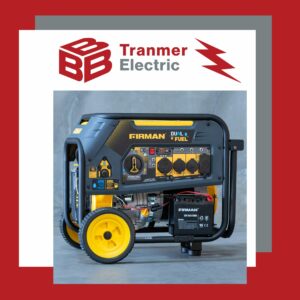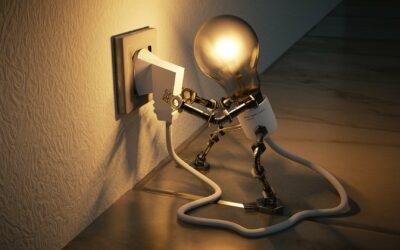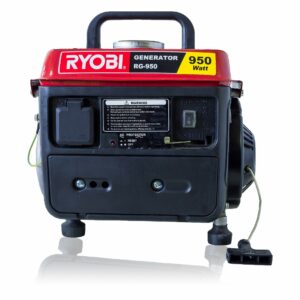As a homeowner, few things are more exciting than upgrading your property with new appliances and amenities. Just about every upgrade you make will require a reliable electrical connection. This includes hot tubs and pools. While electricity may not be the first thing...
From The Blog
Ceiling Fan Removal and Replacement
Feb 10, 2022 | Tranmer Electric
A modern ceiling fan not only looks great, but it can have serious benefits when it comes to temperature regulation and airflow. On the other hand, an outdated or worn-down ceiling fan can completely ruin the appearance of your favorite room. If you have ever...
Is It Time to Update Your Electrical Service?
Jan 10, 2022 | Tranmer Electric
As technology evolves, modern families become increasingly reliant on electrical equipment. When the lights go out, it feels like your entire world goes dark. Your home’s appliances allow you to prepare meals, regulate temperature, provide entertainment, and more....
Our Services
Contact Us
Follow Us
Do you Need An Emergency Backup Generators in your home?
Feb 5, 2021 | Tranmer Electric
Hurricanes aren’t limited to the southern gulf states. Connecticut and other states on the eastern seaboard are also hit by large storms. Tropical storm Isaias left residents without power for over a week from New York to Connecticut.
Electrical crews work as quickly as they can to restore power after a hurricane. Even with help from other states, it can still take days or weeks to fully restore electricity. Trees that are blown over and damaged buildings can make conditions unsafe for repairs.
Going without electricity for an hour is annoying. Losing power for more than a day affects every aspect of your life. There is a way to keep the electricity on, even after a hurricane has interrupted the power grid. An emergency backup generator home will keep the lights on and the ac running until the power is back.
Why You Need an Emergency Backup Generators
Even a category 1 tropical storm can knock down power lines when trees or limbs take out wires or utility poles. With an emergency backup generators home, you’ll still have lights. Food won’t spoil in your refrigerator and you can also keep your septic system running. You don’t want to deal with septic problems on top of storm damage.
Your ac can also be powered by a home generator. Temperatures always seem to rise after a hurricane has passed through. You can stay cool and comfortable inside while the power crews get to work.
Some health problems require at-home treatment, often with electrical devices. Your generator will keep medical equipment functioning at full power. Any medication that needs to stay at a constant cool temperature is also safe in a refrigerator hooked-up to your generator.
What to Look For in a Emergency Backup Generators home
When you’re tired of losing electricity due to storm damage, it’s time to invest in an emergency backup generator. You don’t want to grab the cheapest or most expensive model, rather the one that best fits your needs. There are a few things you’ll want to consider.
- Determine how many and what appliances you want to power. It will make a difference when you’re choosing a home generator. Some can only power one large appliance and a few lights, while others can handle larger loads.
- Think about your climate and when the power often goes out. Winter storms and summer hurricanes in Connecticut often mean you need to connect both your furnace and ac to the generator.
- Well water and septic systems aren’t uncommon. You need to consider these when you’re determining how many watts are necessary to keep you comfortable and prevent additional problems with home water systems when the electricity is restored.
The wattage determines the generator’s size. You also want to look at starting and running watts. It makes a difference when you’re trying to power multiple appliances and devices.
When you have questions, don’t be afraid to ask an expert. A professional electrician can tell you exactly what you need from a home backup generator.
What Type of Emergency Backup Generators Do You Need?
There are two types of home backup generators: portable and standby. Each comes with advantages, along with a few downsides.
Portable Generators
Portable generators are a budget-friendly option when you only need to power a few devices. They usually run on gasoline, so you don’t want to store or use the generator in an enclosed space. It’s also a good idea to get a carbon monoxide detector.
The small generators normally come with wheels and can be easily moved when needed. When you need to connect a few devices, an extension cord comes in handy. The cord connects to the generator and the appliances you want to receive power.
Portable generators have almost become a comparable option to a standby generator because they can generate enough electricity to run your whole house. If you intend to use a portable generator in this manner, you’ll want to install an interlock kit. This option will require a permit and a licensed electrician if you intend to connect it to your house vs. plugging an extension cord into the generator itself.
Standby Generators
You will pay more for a standby generator, but it’s often worth the added expense. The larger generator is hooked up to the home’s power grid. When utility power is interrupted, the generator automatically kicks on. Your home’s power is only out for a few seconds.
Standby generators use either propane or natural gas. If you are going to use propane, an additional detail to consider is the size of the propane tank you’ll use to run the generator. Understanding how much propane your generator can use if it runs for 24-48 hours will give you a sense of how big a tank to get. Remember, if the utility crews can’t make it down the street to fix the downed wires or utility poles, there’s a good chance that your propane delivery truck can’t make it down the street either. You don’t want to be stuck with a generator and an empty propane tank, so get a propane tank that can fuel your generator for a sufficient amount of time.
The standby generator is also able to power most devices in your home. Along with the price and amount of power it produces, there’s another key difference between portable and standby generators. You must have a standby generator installed by a licensed electrician. You’ll also need to have a permit to have it installed.
Choosing the Right Electrician to Install Your Emergency Backup Generators home
You probably won’t need any help installing a portable generator. It’s pretty easy to keep the gas tank topped off and run the extension cord from your house to the generator. There also aren’t any permits involved. The downside is you can only power a few things in the home. For example, you may need to choose between the refrigerator and air conditioning.
With a standby generator, your home’s electrical system is tied to the device. You can keep the ac running, along with your other major appliances. You will need to contact a licensed and insured electrician to install a standby generator. The best contractor will make sure all necessary permits are filed, and every step of the installation is done by the book. They can also coordinate to ensure that the natural gas line or propane tank is properly connected to the generator. In addition, they can check to make sure that the generator is connected to your electrical panel so that it properly detects a power outage and switches to the generator (and back off again when power is restored).
If you choose to install a standby generator, think of it a little bit like another car (it is an engine after all). You will want to talk to your electrician about the scheduled maintenance they recommend to make sure that the emergency backup generators is kept in top running condition so that it is ready in the event you have a power loss.
Before the summer hurricane season arrives, it’s a good idea to start looking at portable and standby emergency generators. You’ll be glad you did when your lights stay on.





